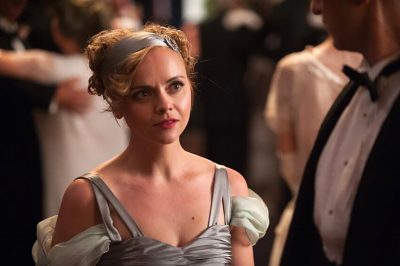
To imagine Zelda as anything but a Fitzgerald comes as a challenge to most. A novelist and socialite, she is distinctly recognizable by her married name as one half of modernity’s most quintessential power couple. Amazon’s new series, “Z: The Beginning of Everything,” aims to examine her life before notoriety. In a simpler time of the proper South, the eponymous Z is a distinct symbol of youthful independence. Although the first episode was released in Nov. 2015, the rest of the first season is set to air on Amazon Prime this Friday.
The first episode introduces a spitting image of spunk amidst stifling rigidity. Zelda Sayre, personified by the sassy Christina Ricci, is a young woman coming of age in Montgomery, Alabama during World War I. The episode is guided by a string of gatherings and parties of notably different crowds and energies — one, a loud and excitable gathering of the young men at war, is a stark contrast to a stuffy formal benefit later in the week.
Among the many interactions documented in the show’s 28-minute screen time, Zelda’s brief scenes with her family are filled with moments of elevated tension. Her father, Judge Anthony Sayre (David Strathairn), is portrayed as overwhelmingly strict and emotionless, drawing energy and excitement away from Zelda and the plot of the show at large.
The most enticement of Zelda’s relationships, meanwhile, involve her fellow partygoers and young adults of the opposite sex — the latter of which includes her future husband F. Scott Fitzgerald (David Hoflin).
In moments of potential romanticism, a doe-eyed Ricci offers marvelous zing to occasional tenderness. The spunk of her independence, especially in “calling the shots” with her romantic pursuits, cultivates the sensation of an unusually strong coming-of-age tale completely absent of awkwardness and angst.
It is the young adults of the series who breathe life into “Z,” a welcome addition to the Amazon lineup that feels more sprightly, youthful and upbeat in comparison to the online service’s returning series. Even in its content categorized as comedic (“Transparent” comes to mind), Amazon tends to lean toward more dramatic overtones that have yet to stake their claim in “Z.” Although only one episode has been released so far, it is difficult to discern the intended genre or the implications thereof.
This unplaceable genre, and the difficulty of identifying whether the intent is to extract humor or drama from the life of the well-known socialite, leave some future directorial choices up to the imagination, prompting speculation with regards to whether or not the show will choose to make light of Zelda’s less-than-pure behavior or hinge upon its dramatic elements.
In addition, the brevity of the show makes transitions between humor and tension feel abrupt. While slightly longer than most network sitcoms, the half-hour runtime is uncharacteristic for the undertakings of a biographical series. Jumping from auspiciously rowdy shindigs to painfully buttoned-up dining rooms with the unsteadiness of a home video compilation, “Z” mimics the short attention span of young adults to an extent that may force the program to eschew some of the many facets of Zelda’s life in favor of quick snapshots of her most exciting moments.
In the length of the episode, as well as in the filming and directorial choices of quick jumps and artistic angles, the program feels decidedly modern. Despite period-appropriate costuming and music, as well as excellent portrayals of a formal southern accent and early twentieth century values by the cast, the show seems to lack the glamorous nostalgia of other Fitzgerald renditions seen in films such as “Midnight in Paris.”
Such recency, however, is not necessarily a detraction from “Z.”
In its ability to show striking modernity in a century-old story, the narrative carries with its timeless themes and an appeal to an audience that is interested not just in the tale of a socialite in the roaring twenties but also in the tale of young, quick and fervent romance. Zelda’s snark peels away at the persistently somber notes of war and strict family supervision. All said, it offers a springier and delightful depiction of carefree female independence in the South.
Undeniably, the story has much more to explore and expand when the first season is released online all at once for streaming. While questions persist, the program is, if nothing else, a pleasant watch and a blossoming symbol of thriving, progressive youth in the midst of stifling southern antiquity.
























































































































